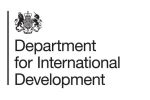 NEWSLETTER ISSUE #5/2018
NEWSLETTER ISSUE #5/2018
|
Plurilateral trade agreements: threat or solution?
In the wake of the longstanding impasse in the World Trade Organization’s Doha Development Round of multilateral trade talks, a number of countries have been exploring alternative ways to advance their trade agendas – one being the negotiation of plurilateral trade agreements or ‘plurilaterals’. Plurilaterals are voluntary, sector-based agreements that fall outside of the WTO system and its various rules, but they have the potential to be ‘multilateralised’ and therefore applied to the full WTO membership. To date, it is mainly developed countries that have gravitated towards plurilateral trade agreements, with the uptake among developing countries being very limited. Why plurilaterals have not taken off in the developing world and how this situation should be addressed was the subject of a wide-ranging research project – commissioned by the UK’s Department for International Development (DfID) ‒ in which TRADE participated for the best part of 2017, along with partners from SAIIA (South African Institute of International Affairs) and Imani Development. Comprising an extensive literature review, fieldwork in six countries (Chile, Bangladesh, Malawi, India, South Africa and Lesotho) and a quantitative analysis using the GTAP (Global Trade Analysis Project) modelling approach as the overarching analytical framework, the research study centred on four specific agreements: the Trade in Services Agreement (TiSA), the Government Procurement Agreement (GPA), the Environmental Goods Agreement (EGA) and the Information Technology Agreement II (ITA-II). Among the key findings from the study were: it is generally not in developing countries’ interests to participate in agreements such as the EGA or ITA-II because environmental and technology-rich goods do not feature strongly in their export baskets; becoming signatories to plurilaterals would invite higher levels of competition from imported goods, which could threaten local industries, while also leading to developing country governments losing ‘policy space’ – that is, the discretion to adapt trade policy to prevailing economic conditions; countries often lack the human, technical and financial resources needed to participate meaningfully in plurilateral trade negotiations; and if developing countries were to shift their attention to plurilaterals, there is a risk that the outstanding issues on the Doha agenda (including the contentious debates around agricultural protectionism) would remain unresolved. If the developing world is to embrace the concept of plurilaterals, more needs to be done to ensure greater flexibility in the agreements to afford developing country governments more policy space and also improved prospects of the agreements eventually being ‘multilateralised’ so that they become subject to WTO rules and disciplines. These would include the dispute settlement process and the special trade treatment afforded to least-developed countries. The full project report is available here. |
Plurilateral trade agreements: threat or solution?
Archive newsletters
|
|

